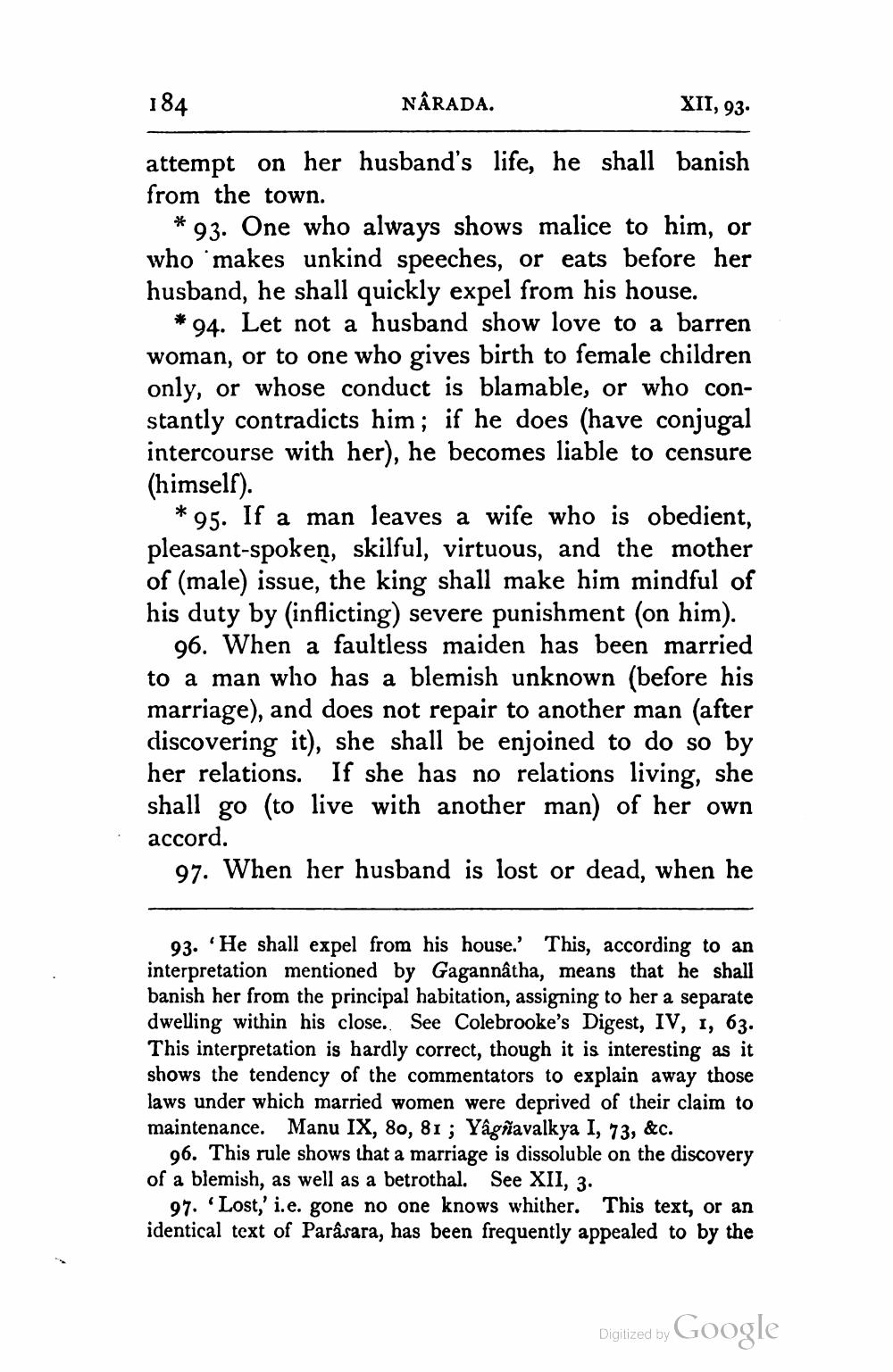________________
184
NÂRADA.
XII, 93.
attempt on her husband's life, he shall banish from the town.
*93. One who always shows malice to him, or who makes unkind speeches, or eats before her husband, he shall quickly expel from his house.
*94. Let not a husband show love to a barren woman, or to one who gives birth to female children only, or whose conduct is blamable, or who constantly contradicts him; if he does (have conjugal intercourse with her), he becomes liable to censure (himself).
*95. If a man leaves a wife who is obedient, pleasant-spoken, skilful, virtuous, and the mother of (male) issue, the king shall make him mindful of his duty by (inflicting) severe punishment (on him).
96. When a faultless maiden has been married to a man who has a blemish unknown (before his marriage), and does not repair to another man (after discovering it), she shall be enjoined to do so by her relations. If she has no relations living, she shall go (to live with another man) of her own accord.
97. When her husband is lost or dead, when he
93. He shall expel from his house.' This, according to an interpretation mentioned by Gagannátha, means that he shall banish her from the principal habitation, assigning to her a separate dwelling within his close. See Colebrooke's Digest, IV, 1, 63. This interpretation is hardly correct, though it is interesting as it shows the tendency of the commentators to explain away those laws under which married women were deprived of their claim to maintenance. Manu IX, 80, 81 ; Yâgñavalkya I, 73, &c.
96. This rule shows that a marriage is dissoluble on the discovery of a blemish, as well as a betrothal. See XII, 3.
97. 'Lost,' i.e. gone no one knows whither. This text, or an identical text of Parâsara, has been frequently appealed to by the
Digitized by Google




